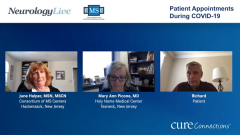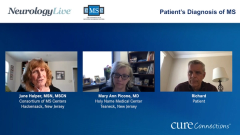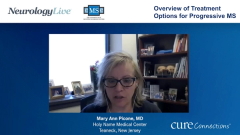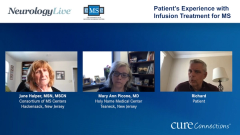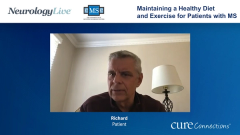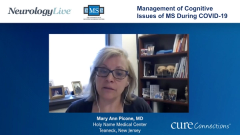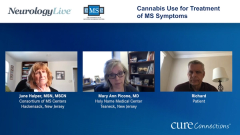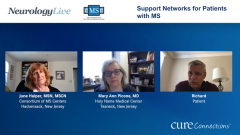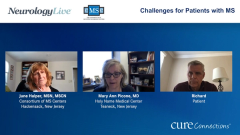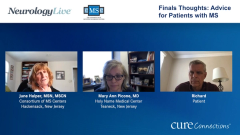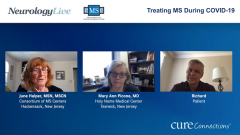
Challenges for Patients With MS
Mary Ann Picone, MD, suggests that 1 of the biggest challenges is patients without strong support networks.
Episodes in this series

June Halper, MSN, MSCN: Dr Picone, it sounds as though we have a very intelligent, literate, productive, and exciting person in this conversation, but I know there have been specific challenges that you’ve faced on the treatment journey of some patients over the years. What situations have you found the most difficult? What resources have you utilized besides Frederick Foley and a psychological team?
Mary Ann Picone, MD: One of the biggest challenges has been for patients who don’t have supportive family members or friends that they can rely on. That has been so difficult. Patients who have progressive disease have been the most challenging because, No. 1, prior to Ocrevus, there were no FDA-approved treatments at all for primary progressive disease. We still have not been able to reverse the disability that patients have. Patients who are isolated or don’t have good caregiver support are the patients who are most at risk for problems to develop. Patients who are unable to take care of themselves and are struggling to get support at home have been the most challenging throughout the years. Through some of the organizations, like the Multiple Sclerosis Association of America and the National MS [Multiple Sclerosis] Society, they’ve been able to get some resources. We try to reach out to social work to see what other community resources might be available. Transportation is a big challenge for so many patients because if you can’t drive because of your MS, particularly in a state like New Jersey where you really depend on your car, and if you don’t have transportation or an accessible transport, then that’s a challenge if you’re in a wheelchair or you use a walker. Uber has been very helpful for many patients because it has given them a transportation option if they don’t have family support. Over the last few years, they have been able to get Ubers. That has been helpful.
June Halper, MSN, MSCN: Do they have accessible cars or vans?
Mary Ann Picone, MD: Yes, some Ubers are accessible. One of the nice things that we’ve been able to get through a donor here at the center is a transportation van, which has helped people who otherwise wouldn’t have been able to get to their MRIs or their blood work done, along with other necessary tests.
June Halper, MSN, MSCN: Because MS is a lifetime disease, and the community neurologist doesn’t have the resources you do at the MS center, what advice would you give them in terms of treating their patients with MS?
Mary Ann Picone, MD: As we’ve been talking about today, you can see how many aspects and facets are involved in MS care with the different treatments, the education that’s involved, the nursing support, and the rehabilitation support that you need for patients to live their best life. If a patient has MS, they’re best served in this day and age at an MS center because it’s so challenging. It’s challenging for us here and for community neurologists who have limited time to spend with a patient, who’s trying to deal with not just MS but patients who have epilepsy, headaches, stroke, etc. You cannot give a patient with MS the support they need to be able to maintain their best life.
June Halper, MSN, MSCN: I want to thank our audience for watching this NeurologyLive® Cure Connections®. If you enjoyed this program, please subscribe to our e-newsletter to receive information about upcoming programs.
Transcript Edited for Clarity
Newsletter
Keep your finger on the pulse of neurology—subscribe to NeurologyLive for expert interviews, new data, and breakthrough treatment updates.

